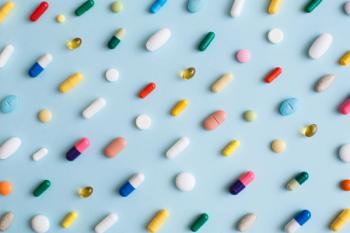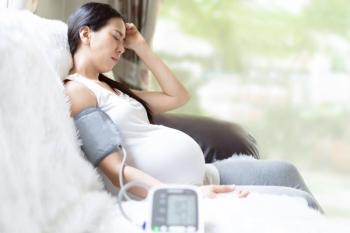
A study recently published in Nature Mental Health found how social stress in adolescence can have long-lasting effects in female mice, with implications for postpartum depression (PPD) in humans.

A study recently published in Nature Mental Health found how social stress in adolescence can have long-lasting effects in female mice, with implications for postpartum depression (PPD) in humans.

A recent study sheds light on the significant association between alcohol use disorder and suicide mortality found regardless of sex, emphasizing the importance of addressing alcohol use disorder in suicide prevention strategies.

Review some of the top stories from the Contemporary OB/GYN website over the last week, and catch up on anything you may have missed.

A recent study from the National Institutes of Health reveals an intervention led by non-specialist providers during pregnancy significantly lowers postpartum depression and anxiety risks, especially crucial for women in resource-poor settings where mental health care access is limited.

A recent study sheds light on why women with depression face a greater risk of cardiovascular disease than men, highlighting the need for tailored prevention and management strategies.

A study revealed a significant increase in antidepressant prescriptions among adolescents and young adults during the COVID-19 pandemic, particularly among female adolescents, indicating exacerbation of pre-existing mental health challenges.

A recent investigation sheds light on the efficacy of hormone therapy in alleviating depressive symptoms associated with menopause, revealing potential benefits for women undergoing natural menopause.

Recent research highlighted the significant correlation between adverse childhood experiences and heightened risks of preeclampsia and depression during pregnancy.

A recent study revealed an 8.47-fold increased risk of suicide attempts among individuals with polycystic ovary syndrome, prompting the need for proactive mental health management in patients and improved tools for assessing health-related quality-of-life.

A study revealed a correlation between maternal cortisol levels, stress, and adverse birth outcomes, shedding light on potential implications for perinatal health.

Review some of the top stories from the Contemporary OB/GYN website over the last week, and catch up on anything you may have missed.

A comprehensive study highlighted significant gender-related inequalities in long-term mental health conditions, emphasizing the need for improved healthcare support and inclusivity for transgender, non-binary, and gender-diverse populations.

Preliminary findings suggest The Guardians mobile app, blending gaming and behavioral activation techniques, could be a solution for alleviating perinatal depression among pregnant women.

A recent study revealed that early postpartum administration of dexmedetomidine significantly reduces the risk of postpartum depression among women with prenatal depression.

Review some of the top stories from the Contemporary OB/GYN website over the last week, and catch up on anything you may have missed.

A cohort analysis suggests autism may be poorly diagnosed among expectant mothers—and linked to poor birth outcomes.

Review some of the top stories from the Contemporary OB/GYN website over the last week, and catch up on anything you may have missed.

A recent meta-analysis reveals that digital health interventions significantly alleviate symptoms of postpartum anxiety and depression, underscoring their potential as accessible treatments for new mothers.

A recent study reveals that Trauma Center Trauma-Sensitive Yoga, with its higher completion rates and significant symptom improvement, emerges as a promising and cost-effective alternative to cognitive processing therapy for addressing posttraumatic stress disorder (PTSD) in women veterans affected by military sexual trauma.

A recent comprehensive study reveals that 1 in 5 women in low- and middle-income countries grapple with perinatal anxiety disorders, shedding light on a critical yet often overlooked mental health challenge affecting maternal and infant outcomes in these regions.

A recent study unveils an association between residing in socioeconomically disadvantaged neighborhoods and heightened postpartum depression risk, particularly affecting Black individuals.

Explore the findings from a JAMA Network Open study, uncovering the stability of maternal depressive symptoms from pregnancy through 2 years postdelivery, highlighting a need for updated public health policies and timely interventions.

Discover the impact of air pollution on maternal mental health.

New research highlights the significant impact of posttraumatic stress disorder symptoms on the cardiovascular and neurocognitive health of midlife women.

New report shows worrying increase in burnout and harassment among employees.